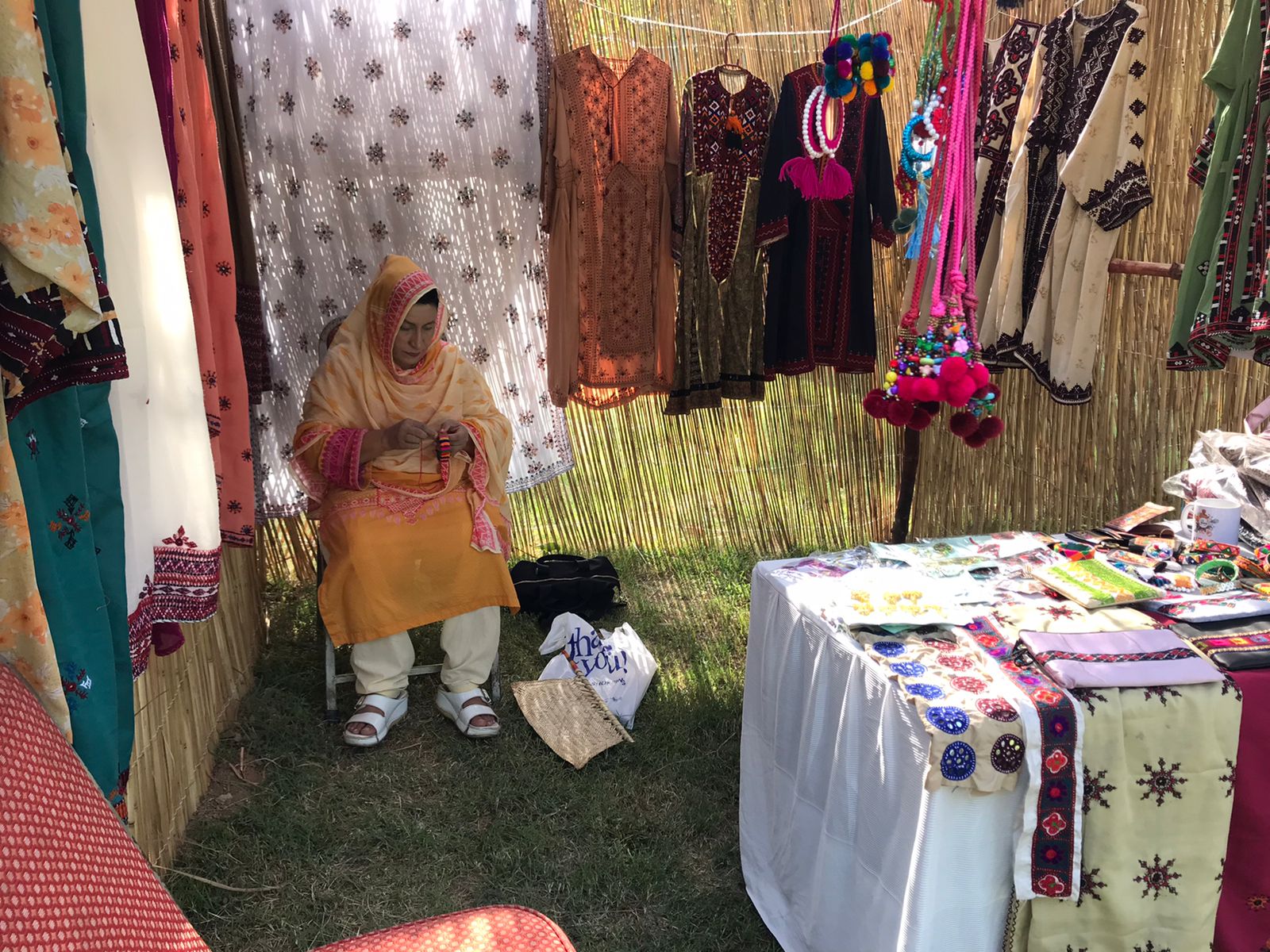Provinces Urged to Elevate Local Crafts to National Industry Status
News Desk
Peshawar: A developed handicrafts sector in Pakistan could guarantee a handsome contribution to GDP, investment opportunities, enhanced foreign exchange earnings, cultural preservation, entrepreneurial development, and alleviation of poverty, said Handicrafts Association of Pakistan Chairperson Maryam Iqbal.
Speaking at an exhibition, Maryam Iqbal stated that the handicrafts industry has been neglected, whereas it has a lot of potential. Provincial governments should prioritise the handicraft industry as a national industry.
Artisans should be encouraged by offering opportunities and financial support to display their art and products in exhibitions, Maryam further added.
An ‘Exhibition of Handicrafts’ from across Khyber-Pakhtunkhwa (KP) was organised by the Handicrafts Association of Pakistan in collaboration with the Youth Directorate of KP at the Centaurus Mall in Islamabad.
Young artisans from across KP participated in the event to showcase crafts locally sourced and made in their areas. These included straw baskets, truck art, leather, gemstones and local embroidered suits.
The event was an opportunity for artisans to attract buyers from the federal capital and gain exposure. They also had the opportunity to get orders from international firms as trade attachés of diplomatic enclaves were also present. Pakistan is bestowed with artisans rich in texturing and elegant handicrafts that have a lucrative global demand. The only thing needed is to ensure that production is being done in a systematic and cost-effective way, the chairperson further added.
Pakistan is bestowed with artisans rich in texturing and elegant handicrafts that have a lucrative global demand. The only thing needed is to ensure that production is being done in a systematic and cost-effective way, the chairperson further added.
For instance, Balochistan is the major producer of salt items, leatherwork, sheepskin items and mats. Ajrak, Ralli, Sasi, Khadi and the ceramic work of Sindh reflect a serene picture of the skill of artisans.
Moreover, KP is rich in traditional embroidery and copper work. Multan and Bahawalpur regions are famous for blue pottery, embroidery and camel-skin lamps; Peshawar Misgaran Bazaar is a historic market for brass and silver utensils.
Chiniot woodcrafting could evolve as a specialty for Middle Eastern and European markets. Swat and D.G. Khan produce thread and mirror embroidery. Internationally commended hand-knotted carpets and rugs are the work of artisans in Lahore and Balochistan.
According to the Sargodha Chamber of Commerce and Industry recent survey, there are only 1140 craftsmen in the small town of Sillanwali near Sargodha but it has not yet gotten the legal status of the industry.
The majority of handcraft exporters are situated in Karachi so small-scale handicrafts in various regions struggle to gain attention. To promote and facilitate localised artisans, the export hubs should be evenly dispersed among the regions.
An effective way to achieve this milestone promptly is by calling for well-researched proposals to design and implement a methodical plan for handicrafts.

Comments are closed.